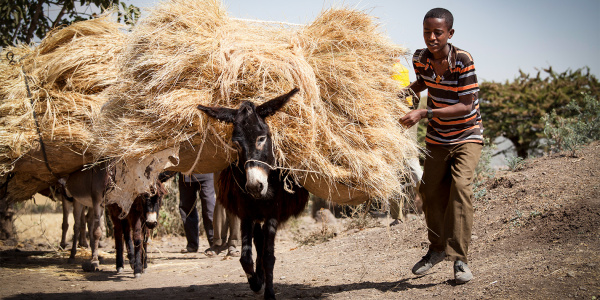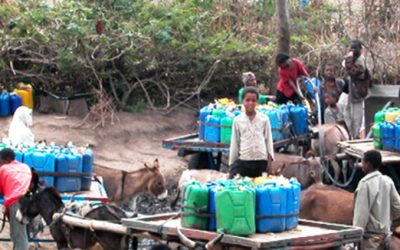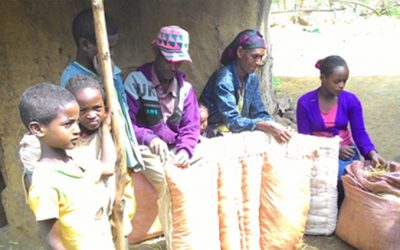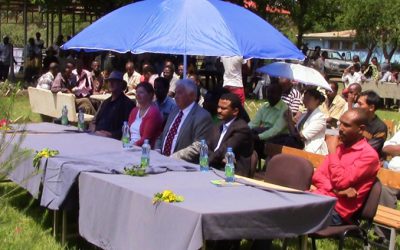Kindred spirits at the Addis Oasis
Kindred spirits at the Addis Oasis
Our friendly driver Zalalem drove us 45 minutes out of the heaving centre of Addis Ababa, the capital of Ethiopia, to its more rural peripheries. Our journey took us to what would become one of the highlights of my and Heather Ross's visit to the country under the 2015 Dr Svendsen scholarship scheme-Cheshire Services Ethiopia, home to the first donkey assisted therapy project supported and funded by The Donkey Sanctuary outside of Europe.
Cheshire Services is an oasis of green grass and serenity amongst the poverty of suburban Addis Ababa. Set up 54 years ago, it offers medical care and rehabilitation for children with polio-related leg deformities, amputations, congenital defects and burn injuries. Not only does the organisation have its own clinic and dormitories, it is also equipped with a workshop for making prosthetics and wheelchairs, a hydrotherapy department and, fantastically, a new yard and stables for donkey assisted therapy.
The Donkey Sanctuary’s partnership with Cheshire Services started in 2011, when a member of staff paid it a visit to explore the possibility of working together. The partnership aims to develop the life skills of disadvantaged children through interaction with donkeys and through this bring about a change in attitudes to disability and donkeys in the country.
If the donkeys can accept me, anyone can accept me.
Yeserash
It was here we met three of the luckiest donkeys in Ethiopia. There are two adults, both seven years old – Jack, a cheeky chappy with a large personality, and Maddie, a gentle jenny with soulful eyes. The third donkey is Bontu, Jack and Maddie’s seven-month-old daughter, who is even more sociable and cuddly than her lovable parents. When we asked why she was named Bontu, we were told that her name means ‘confidence’ in the local language of Oromo, a name chosen because of the new-found confidence the donkeys give to the children – a fact we soon witnessed.
We watched as Cheshire Service’s donkey assisted therapist Tirsit led a grooming and interaction session between eleven children and the three donkeys. To see the children stroking, brushing and talking to these animals was extremely moving. As we spoke to Tirsit whilst the children cuddled their donkeys, a theme kept recurring – that of outcasts who had found kindred spirits in each other.
Many children who are born with deformities are said to bring shame on their families, such as Yeserash, a girl with congenital clubfoot whose brother helped her flee from an arranged marriage. She was freed from the scorn of her family only to be left alone when her brother passed away in the city. Others whose injuries were through accidents are thought to have been cursed, such as Zahira, whose burns were seen by her family as a curse and led her to being kept shut in at home. Or children like Abew, a young boy who, after having surgery due to polio which left him in a wheelchair, was made to work as a shoe-shine boy in the streets rather than attending school. Stories like these abound at Cheshire Services, but it is through the donkeys that they all find a common theme of love, responsibility and acceptance.
Both donkeys, often seen as unclean outcasts who have no emotions and feel no pain, and the children at Cheshire Services, whose additional needs label them as outcasts in society, find a mutual bond of trust and tolerance. So much so that Abew, looking back at his childhood, now empathises with how hard donkeys have to work and wants to teach others to treat animals with respect. Also Yeserash, who now feels she has the confidence to apply for her college exams. In her own words she told us, ‘Therapy with the donkeys feels like rebirth. I now know that if the donkeys can accept me, anyone can accept me. I know that all I need to get me through life is the confidence I now have in myself’.




Hi, this is a comment.
To get started with moderating, editing, and deleting comments, please visit the Comments screen in the dashboard.
Commenter avatars come from Gravatar.